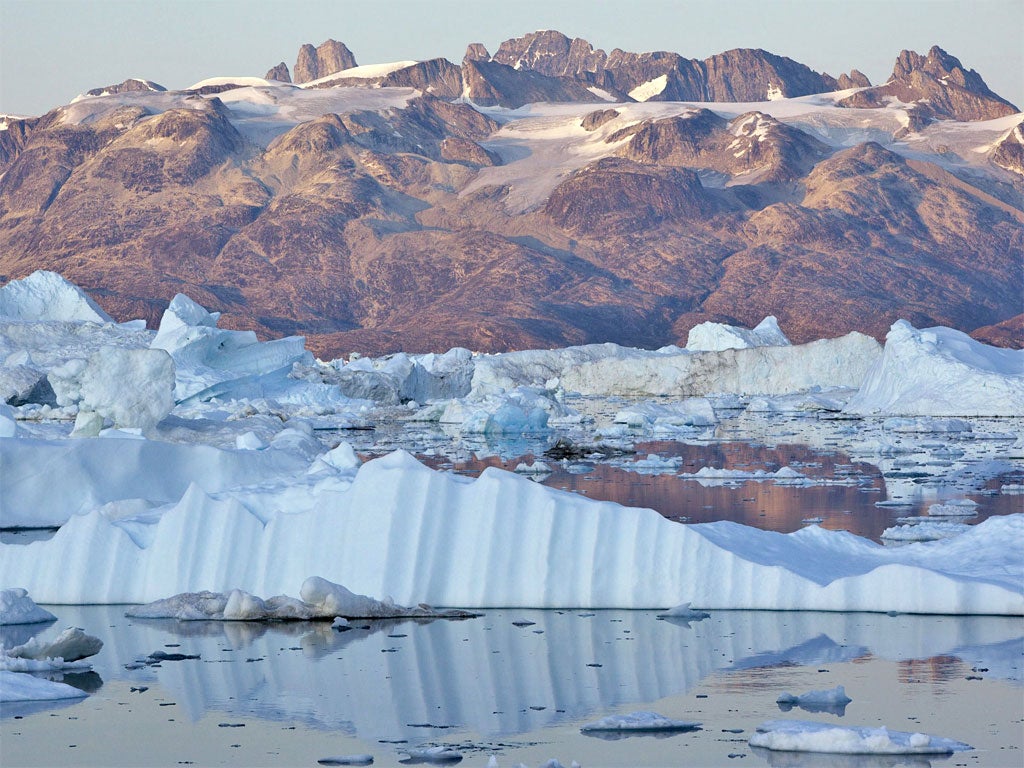Fear of 'catastrophic' sea-level rise as ice sheets melt faster than predicted
Most experts believe they have underestimated the effects of climate change, survey suggests

Glaciologists fear they may have seriously underestimated the potential for melting ice sheets to contribute to catastrophic sea-level rises in coming decades which could see increases of a metre or more by 2100.
The ice sheets of Greenland and Antarctica contain about 99.5 per cent of the Earth's glacier ice and could raise sea levels by 65 metres if they melted completely – although experts think this is highly unlikely in the foreseeable future. However, a survey of the world's top 26 glaciologists found most believe melting of the ice sheets could be more rapid and severe than previously estimated. They believe that melting of the ice sheets alone this century would be likely to raise the average global sea level by 29cm, the poll found, but there is a five per cent chance of it increasing even further by a catastrophic 84cm.
This would take the total sea-level increase to well over a metre if other factors such as the thermal expansion of oceans and runoff from mountain glaciers are taken into account.
"Our analysis shows the biggest uncertainty when it comes to sea levels is the contribution from the ice sheets," said Professor Jonathan Bamber of Bristol University, lead author of the study published in the journal Nature Climate Change.
"It shows glaciologists believe there is a one-in-20 chance of sea levels rising by a metre or more by 2100, and a metre rise in sea level is really very serious.
"The impacts of sea-level rise of this magnitude are potentially severe, implying a conceivable risk of the forced displacement of up to 187 million people within this century."
Rising sea levels are one of the greatest uncertainties of climate change. A warmer world causes oceans to expand thermally but also leads to faster melting of mountain glaciers and some regions of the polar ice sheets.
However, glaciologists are uncertain about how the ice sheets will respond to increasing global temperatures and climate change, Professor Bamber said.
One of the most challenging issues facing glaciologists is working out how much of the melting of the Greenland and West Antarctic Ice Sheet is due to natural variation and how much is due to emissions of man-made greenhouse gases into the atmosphere, he said.
Join our commenting forum
Join thought-provoking conversations, follow other Independent readers and see their replies
Comments
Bookmark popover
Removed from bookmarks